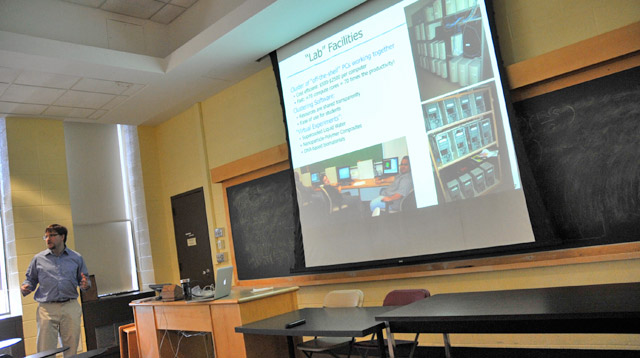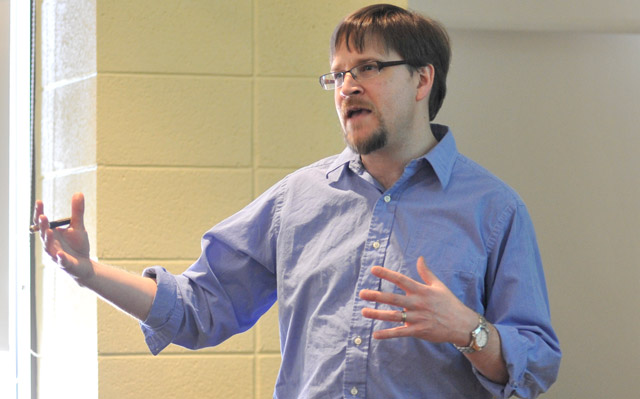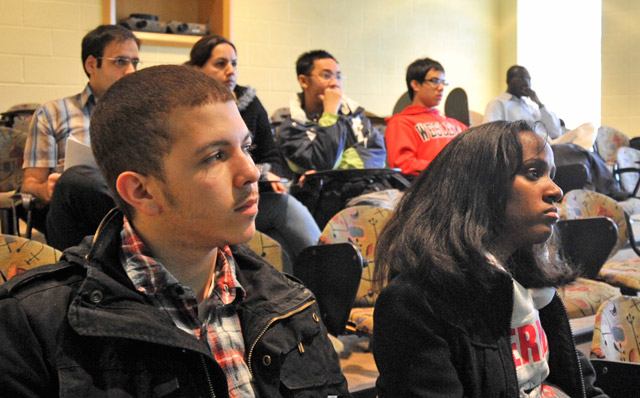McNair Program Offers Faculty, Student Research Talks
The Wesleyan McNair Program assists students from underrepresented groups in preparing for, entering, and progressing successfully through post-graduate education. The program provides guidance, research opportunities, and academic and financial support to students planning to go on to Ph.Ds. All fields of research leading to a Ph.D. are eligible.
In efforts to prepare undergraduates from diverse backgrounds for graduate studies, the McNair Program hosts a series of research talks. These talks are designed for interested, non-expert, students. They are free and open to all students.
The next McNair Research Talk will take place from noon to 1 p.m., Friday, April 15 in Exley Science Center room 121. Christian Hoyos ’11 will speak on “Direction-of-transfer effects in Children’s map use” with his mentor, Anna Shusterman, assistant professor of psychology; Matthew Narkaus ’11 will speak on “Race Language in Psychological Experiments” with his advisor, Jill Morawski, professor of psychology and director of the Center for the Humanities; and Jessica Bowen ’11 will speak on “Breaking Habit (U.S.) Diversifying the Elite at……” with her mentor, Sarah Wiliarty, assistant professor of government, tutor in the College of Social Studies. More information is online here.
On March 25, the McNair Program hosted a talk by Francis Starr, associate professor of physics. Pictures of his talk are below:



The Wesleyan McNair Program is funded by the Ronald E. McNair Post-Baccalaureate Achievement Program through the U.S. Department of Education. It serves students who are first generation college students from low-income families, or who are from African-American, Hispanic, Native Hawaiian or Native American decent.

